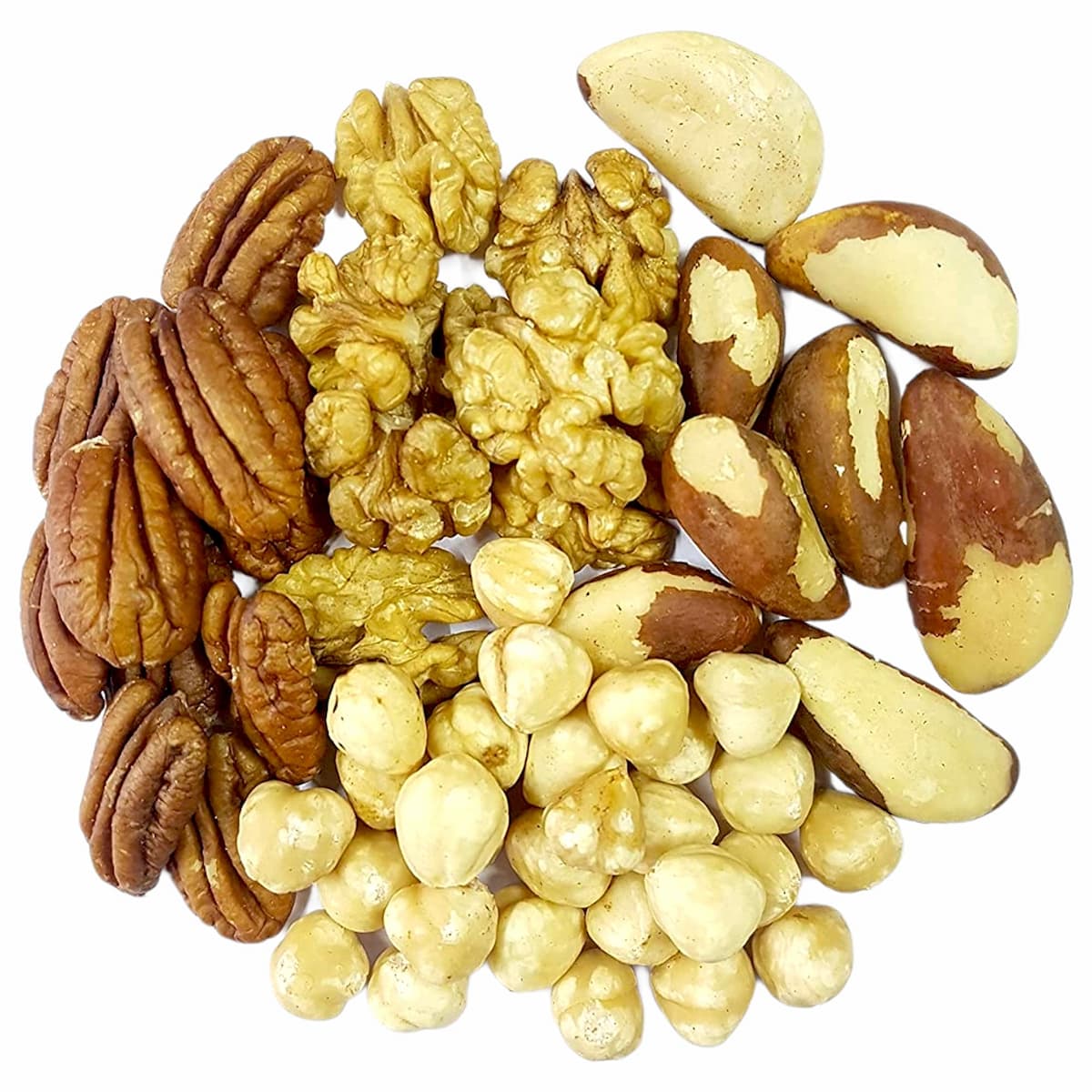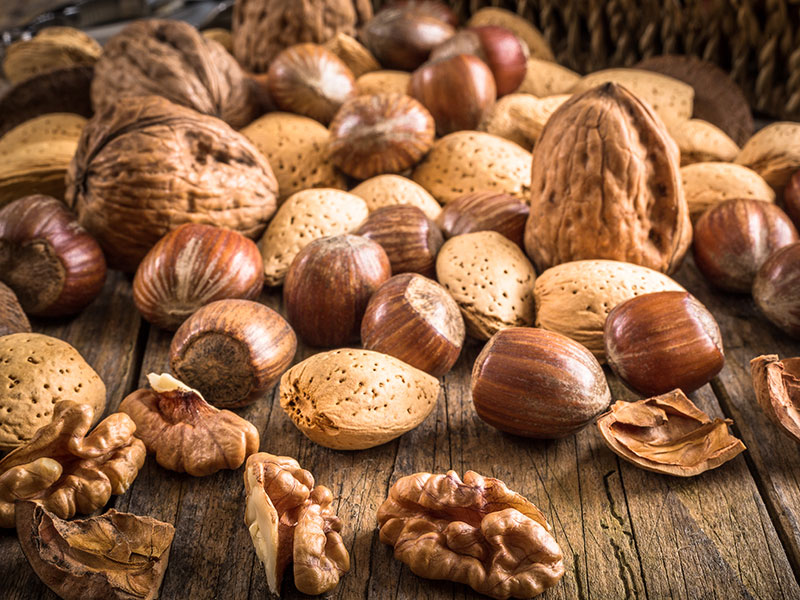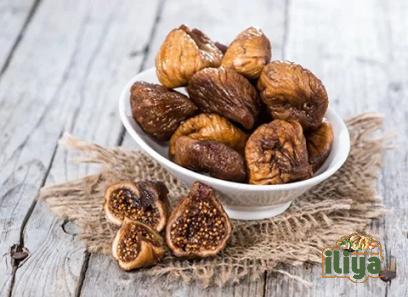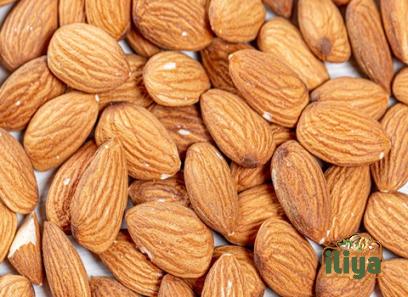Shelled walnuts, with their distinct flavor and crunchy texture, have long been considered a nutritious and versatile ingredient in various culinary creations. While most people are aware of the health benefits associated with walnuts, many often wonder about their calorie content and potential impact on weight management. This article aims to demystify the caloric content of shelled walnuts while exploring the broader nutritional profile and benefits these nutrient-dense nuts offer.
Understanding Caloric Content of Shelled Walnuts:
Walnuts are a high-calorie food due to their high fat content, although the types of fats found in this nut are predominantly the heart-healthy unsaturated fats. A 1-ounce (28-gram) serving of shelled walnuts typically contains around 185-195 calories.
Despite their high calorie count, walnuts should be regarded as a valuable source of nutritional goodness rather than a dietary enemy. Consuming walnuts in moderation can significantly contribute to a healthy diet.
Walnuts’ Nutritional Profile and Health Benefits:
In addition to being calorie-dense, shelled walnuts are also packed with numerous essential nutrients that promote overall health and wellbeing. Some of the notable nutritional attributes of walnuts include:
1. Healthy Fats: Walnuts are an excellent source of polyunsaturated fats, including omega-3 fatty acids. These fats play a crucial role in maintaining heart health, reducing inflammation, and supporting brain function.
2. Plant-Based Protein: Walnuts are a source of plant-based proteins, making them an excellent option for vegetarians and vegans. The presence of amino acids in walnuts helps in building and repairing bodily tissues.
3. Fiber Content: Walnuts are a good source of dietary fiber. Consuming fiber-rich foods aids in digestive health, promotes satiety, and may help regulate blood sugar levels.
4. Vitamin and Mineral Content: Walnuts contain several vitamins and minerals, including vitamin E, folate, magnesium, and phosphorus. Vitamin E acts as an antioxidant, protecting cells from damage caused by free radicals.

5. Antioxidants: Walnuts are rich in antioxidants, particularly polyphenols. Antioxidants help counteract oxidative stress, which can potentially reduce the risk of chronic diseases such as heart disease and certain cancers.
6. Potential Heart Health Benefits: Regular walnut consumption has been associated with reduced cholesterol levels, improved blood pressure, and decreased inflammation in numerous clinical studies. The omega-3 fatty acids in walnuts contribute to these heart-protective effects.
Incorporating Shelled Walnuts into a Balanced Diet:
While walnuts provide numerous health benefits, it is essential to consume them in moderation due to their high calorific content. Here are a few tips on incorporating shelled walnuts into a well-balanced diet:
1. Mindful Portion Control: The recommended serving size of shelled walnuts is approximately 1-2 ounces (28-56 grams) per day. This ensures you gain the nutritional benefits without derailing your calorie intake.
2. Snacking and Toppings: Walnuts are a convenient and nourishing snack on their own, but they can also be added to salads, yogurt, oatmeal, or baked goods for added texture and flavor.
3. Culinary Usage: Experiment with crushed or powdered walnuts as a coating for proteins, like chicken or fish, to add a nutritious and delicious crunch to your meals. They can also be used as an ingredient in sauces, dressings, and desserts.
4. Be Mindful of Added Ingredients: Opting for plain, unsalted walnuts is the healthiest choice. Pre-packaged or flavored varieties may contain added sugar, salt, or unhealthy oils which can compromise their nutritional value.
5. Combining with Other Foods: Pairing shelled walnuts with foods high in fiber, such as fruits, vegetables, or whole grains, can enhance satiety and promote balanced nutrition.
Conclusion:
Shelled walnuts are a calorie-dense food that provides an abundance of nutritional benefits. While it is important to be mindful of portion sizes due to their high calorie content, incorporating walnuts into a balanced diet can contribute to overall health and wellbeing. The healthy fats, plant-based protein, fiber, vitamins, minerals, and antioxidants found in walnuts make them a valuable addition to a nutrient-rich eating plan. So, if you are seeking optimal nutrition and want to indulge in a delicious, crunchy, and heart-healthy snack, shelled walnuts are undoubtedly worth considering.1. The Growing Demand for Shelled Walnuts:

The consumption of shelled walnuts is on the rise, driven by increasing consumer awareness of their health benefits and versatility in various cuisines. With a growing emphasis on healthy eating and the rise of plant-based diets, the demand for nutrient-dense foods like walnuts has surged. This presents a lucrative opportunity for businesses involved in the production, processing, and distribution of shelled walnuts.
2. Expanding Product Offerings:
To cater to the diverse preferences of consumers, businesses in the shelled walnut industry are expanding their product offerings. Besides traditional whole shelled walnuts, companies now produce chopped, diced, or powdered walnuts, catering to consumers looking for easier incorporation into recipes or specific culinary uses. By diversifying their product range, businesses can tap into new market segments and meet the evolving needs of consumers.
3. Organic and Sustainable Practices:
In recent years, there has been a significant shift towards organic and sustainable farming practices. Consumers are becoming more conscious about the environmental impact of their food choices, leading to a rise in demand for organic shelled walnuts. Businesses that prioritize sustainable agriculture and adopt eco-friendly practices will not only meet consumer demand but also enhance their brand reputation and appeal to environmentally conscious consumers.
4. Packaging Innovations:
Packaging plays a crucial role in ensuring the shelf life and quality of shelled walnuts, whilst also attracting consumers with appealing designs. As consumer demands evolve, businesses are investing in packaging innovations to enhance convenience and sustainability. For instance, resealable pouches or single-serving packs allow consumers to enjoy the freshness of shelled walnuts for longer periods, promoting portion control and reducing food waste.
5. Nutritional Labeling and Claims:
To assuage consumer concerns about calorie counts and nutritional content, businesses need to provide accurate and transparent information on their product labels. Clear nutritional labeling and claims, such as “Heart-Healthy” or “High in Omega-3 Fatty Acids,” can provide consumers with confidence in the health benefits of shelled walnuts. To ensure compliance with regulations, businesses should collaborate with nutritionists and food scientists to accurately assess and communicate the nutritional composition of their products.
6. Marketing and Consumer Education:
While shelled walnuts offer numerous health benefits, some consumers may still be unaware of their nutritional value or how to incorporate them into their diets. Businesses can bridge this gap by investing in marketing campaigns that focus on the nutritional advantages, ease of use, and culinary versatility of shelled walnuts. Educating consumers through recipes, cooking demonstrations, and social media engagement can help generate interest and showcase the potential uses of shelled walnuts in various cuisines.

7. Forming Partnerships with Food Manufacturers:
To expand market reach and offer innovative products, businesses in the shelled walnut industry can consider forming strategic partnerships with food manufacturers. Collaborations can involve the development of walnut-based snack bars, baked goods, or nut butter spreads, capitalizing on the popularity of convenient and healthy foods. Such partnerships can help increase brand visibility, extend product offerings, and create new revenue streams.
8. Export Opportunities:
Shelled walnuts are in demand globally, presenting significant export opportunities for businesses. Different regions have varying consumption patterns and regulations related to shelled walnuts, making it essential for businesses to conduct market research and adapt their products and marketing strategies accordingly. By tapping into international markets, businesses can expand their customer base and reduce dependence on domestic markets.
9. Quality Control and Food Safety:
Businesses involved in shelled walnut production must prioritize quality control and food safety measures to uphold consumer trust and prevent any potential health risks. Implementing rigorous quality control protocols, adhering to industry standards, and obtaining relevant certifications (such as Good Manufacturing Practices) will demonstrate the commitment to producing safe and high-quality shelled walnuts. Regular testing for aflatoxins, a naturally occurring toxin that can affect walnuts, is crucial to ensure product safety.
10. Research and Development:
Continual research and development efforts are essential to stay ahead in the competitive shelled walnut market. Investing in research can involve exploring new walnut varieties, discovering innovative processing techniques to enhance quality, or developing value-added products. Businesses should stay abreast of advancements in nutritional science, culinary trends, and consumer preferences to adapt their offerings and maintain a competitive edge.
11. Supply Chain Management:
Efficient supply chain management is crucial for businesses in the shelled walnut industry to ensure timely and quality product delivery. Maintaining close relationships with walnut growers, processors, distributors, and retailers helps streamline the supply chain and minimize delays or quality issues. Additionally, technologies like blockchain can enhance traceability, providing consumers with assurance regarding the origin and quality of shelled walnuts.
12. Consumer Feedback and Engagement:

Engaging with consumers and actively seeking their feedback can provide valuable insights for businesses in the shelled walnut industry. Conducting consumer surveys, monitoring online reviews, and encouraging customer interactions can help businesses understand consumer preferences, address concerns, and improve their products and services accordingly. By actively involving consumers, businesses can build loyalty, strengthen their brand reputation, and drive future growth.
Conclusion:
The shelled walnut industry offers numerous opportunities for businesses to cater to the growing demand for healthy, convenient, and versatile food products. By capitalizing on consumer awareness of the nutritional benefits of shelled walnuts, diversifying product offerings, adopting sustainable practices, and utilizing effective marketing strategies, businesses can position themselves for success in this thriving industry. With a focus on quality, innovation, and consumer engagement, businesses can seize the potential of shelled walnuts and meet the evolving needs of health-conscious consumers around the world.










